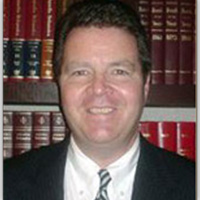South Bay DUI-DWI Lawyer, Florida
Sponsored Law Firm
-
 x
x

Click For More Info:
-
Law Office of Mark S. Guralnick
55 Madison Avenue 4th Floor Morristown, NJ 07960» view mapCriminal Defense Law Dedicated. Fearless. Successful.
Mark S. Guralnick and his legal team have helped clients throughout the USA and across the world by applying unparalleled dedication and hard work to each case.
800-399-8371
Douglas Ian Leifert
Douglas Leifert is a lawyer in West Palm Beach who focuses on Assault cases. He has tried cases involving drug charges, domestic violence, DUI, probat... (more)
Charles B. Mead
✓ VERIFIEDSouth Florida attorney Charles Mead has spent two decades defending men and women who found themselves in desperate situations with few foreseeable al... (more)
Glenn R Roderman
✓ VERIFIEDGlenn R. Roderman hails from the town of Port Jervis, New York, but he has been a resident of South Florida for several decades. Mr. Roderman obtained... (more)
Brian Starr Leifert
Brian Leifert is a lawyer in Fort Lauderdale who focuses on Assault cases. He has tried cases involving domestic violence, drug charges, sex crimes, D... (more)
FREE CONSULTATION
CONTACTDana Fortugno
FREE CONSULTATION
CONTACTLourdes Casanova
David V. Laverty
FREE CONSULTATION
CONTACT Mark Guralnick Morristown, NJ
Mark Guralnick Morristown, NJ AboutLaw Office of Mark S. Guralnick
AboutLaw Office of Mark S. Guralnick Practice AreasExpertise
Practice AreasExpertise





